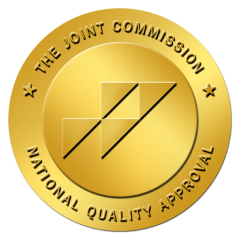
8 Things to Know About Working as a Traveling Healthcare Professional
You love your job as a healthcare professional, but maybe you’re ready to see more of the country, experience life in new places, add some variety to your work, or make more money. If you have at least a year of experience, and your situation allows you to flex your living arrangements, becoming a traveler might be a great fit for you.
For RN Steven Dean, life as a traveler checked all the boxes. After 10 years as a surgical technologist, and the last eight as a registered nurse, Steven took the leap and became a traveler. He says he loves his job because of the relationships he’s made and the people he has helped along the way. For the past two years, Steven and his wife Lori, an x-ray tech, have been making those connections on the road.
Steven highly recommends traveling for healthcare professionals who are in a position to do so. “You’re paid well, get to see the country, and can experience the best of what each new area has to offer,” he says.
Read on to learn more. And then, if you’re interested in pursuing a traveling healthcare job, contact Senior Medical Recruiter Scott Charles at Medical Talent to get started.
- There are opportunities everywhere. COVID-19 has created a huge demand for healthcare professionals at facilities across the country. “Hospitals are being proactive with their hiring because of COVID-19 and now the flu,” explains Medical Talent Divisional President Todd Livingston. “They’re preparing for the worst and planning their human resource needs through the first of next year.” This increased demand gives travelers more options because many states are more flexible with their licensing requirements. “We have the job orders now,” Livingston says, “and we’re looking for qualified candidates to fill them.”
- You’ll stay in one place for several weeks. Assignments typically last from several weeks to several months, with the average being 13 weeks. This gives you ample time to truly experience life in that temporary community.
- You don’t have to find the job yourself. Travelers work with recruiting agencies, like Medical Talent, that do the research to find available jobs. “We just decide what states we want to visit and give our recruiter a list,” Lori Dean explains. “They look for jobs in those states and we pick where we want to go next.”
- Though you may not always land exactly where you want to be. “We do our best to place our travelers in the city where they want to work, but there’s not always a perfect match,” Livingston says. “My promise to all our travelers is that while they’re on assignment, we’ll do everything in our power to find them their next job, exactly where they want to go.”
- You can usually choose where you live. Some recruiters find housing for their travelers, while others will offer a per diem so healthcare professionals can find their own place. Oftentimes, travelers will share housing to save money. The bottom line is, you have choices.
- You can take time off. Travelers can take breaks between assignments…or not… to suit their needs and lifestyle. Once you accept a job, Lori recommends being clear up-front about her my days off, even putting them in her contract. “That way there’s no fighting or trying to get people to cover your shifts,” she says.
- Traveling can help you reach your career goals faster. Medical Talent’s recruiters spend time getting to know their people to learn what they want to achieve with their careers and where in the country they want to work. Then they play matchmaker to connect the dots. “Our travelers tell us what they want to achieve personally and professionally, and we put together a game plan to get them there,” Livingston explains. “If they don’t have the skills or experience, we’ll help them stair-step their way up to get where they want to be.”
- There is a process. Steven says it’s hard work, but there are many rewards that come with it, with the worst part being the paperwork. “There’s always a lot of testing and paperwork that has to be done at the beginning of each assignment to be allowed into the facilities,” he says. “But once you’re in the facility, it’s business as usual, doing the job you’re already trained to do.”
- You need to choose the right recruiter. Now that he has some traveling experience under his belt, Steven says that choosing the right recruiting firm is critical. “As a traveler, you depend a lot on your agency and some are definitely better than others,” he says. “My recruiter at Medical Talent is worth his weight in gold. The staff really looks out for you. They’ll guide you the process and lead you down the path to success.”
“I worked with three other companies before finding Medical Talent, but this company will be my last,” Steven says. “Having confidence in your company and the peace of mind you get with your recruiter, along with knowing that you’re being looked after, is priceless.”
If you’re interested in learning more about becoming a traveling healthcare provider with Medical Talent or about our open positions and application process, contact Recruiter Scott Charles at scharles@talent-corps.com or 972-468-9111 ext. 301.
